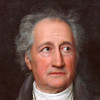“ the man who is by nature apt to fear everything, even the squeak of a mouse, is cowardly with a brutish cowardice, while the man who feared a weasel did so in consequence of disease; and of foolish people those who by nature are thoughtless and live by their senses alone are brutish, like some races of the distant barbarians, while those who are so as a result of disease (e.g. ”
Aristotle, Nicomachean Ethics (c. 334 BC - 330 BC). copy citation
| Author | Aristotle |
|---|---|
| Source | Nicomachean Ethics |
| Topic | cowardice fear |
| Date | c. 334 BC - 330 BC |
| Language | English |
| Reference | |
| Note | Translated by W. D. Ross |
| Weblink | http://classics.mit.edu/Aristotle/nicomachaen.mb.txt |
Context
“incontinence but that which is so by analogy, as the man who is in this condition in respect of fits of anger is to be called incontinent in respect of that feeling but not incontinent simply. For every excessive state whether of folly, of cowardice, of self-indulgence, or of bad temper, is either brutish or morbid; the man who is by nature apt to fear everything, even the squeak of a mouse, is cowardly with a brutish cowardice, while the man who feared a weasel did so in consequence of disease; and of foolish people those who by nature are thoughtless and live by their senses alone are brutish, like some races of the distant barbarians, while those who are so as a result of disease (e.g. of epilepsy) or of madness are morbid. Of these characteristics it is possible to have some only at times, and not to be mastered by them. e.g. Phalaris may have restrained a desire to eat the flesh of a child or an appetite for unnatural sexual pleasure;”
source


